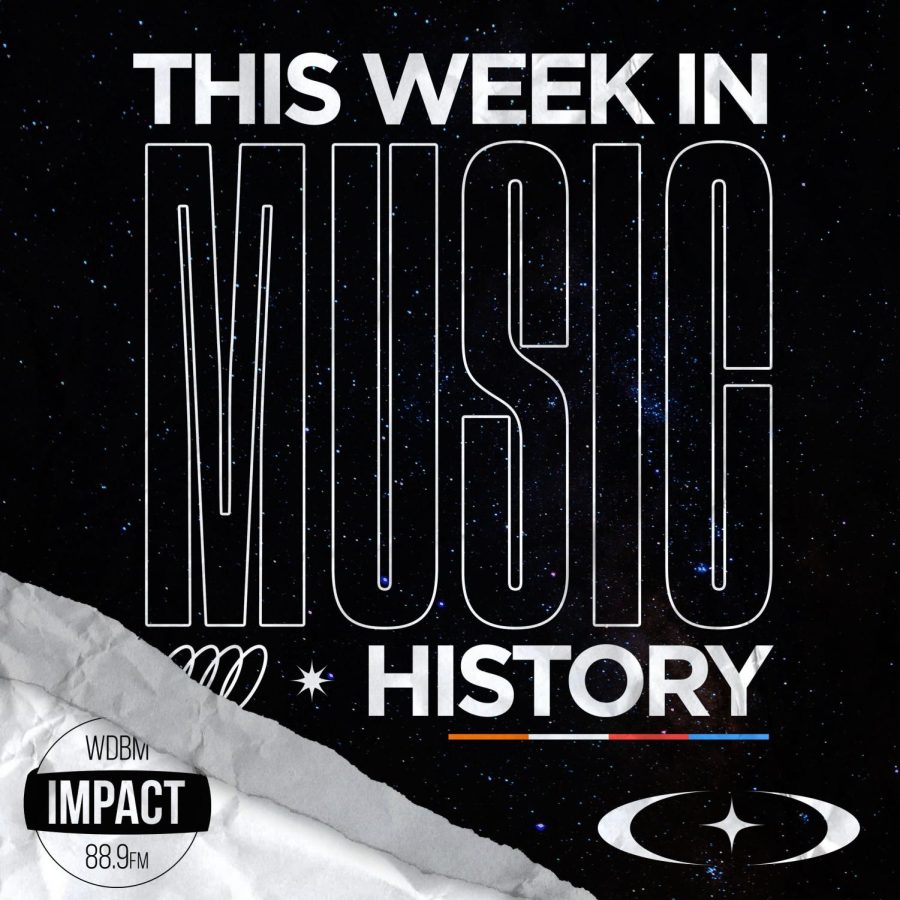This Week in Music History | March 5-11
March 6, 2023
On March 5, 2000, MC Hammer decided to hang up his legendary hammer pants and became a preacher.
The former batboy for the Oakland Athletics turned rap pioneer was launched into superstardom with the help of his 1990 track, “U Can’t Touch This.” Sadly, all that glittered was not gold, as Hammer filed for bankruptcy in 1996. Hammer later took up the pulpit at the Jubilee Christian Centre in San Jose.
There’s a whole subgenre of YouTube videos that are Christian covers of pop songs, including the “Cha Cha Slide.” Now imagine MC Hammer making one of these with his own music. Can’t get that image out of your head? Yeah me neither. Never doubt who can touch the Holy Spirit, cause U Can Touch This.
~Ashe Burr
Moving away from glam rock and experimenting with R&B and soul, Young Americans is an amazing addition to David Bowie’s legacy. Released on March 7, 1975, Young Americans is the ninth studio album by the London-born musician. Young Americans presented a new musical direction for Bowie. Although songs on Diamond Dogs like “Rock ‘n’ Roll with Me” and “1984” exhibited a funk and soul direction, no one expected the full-blown, blue-eyed soul of Young Americans. Paired with Carlos Alomar, who went on to collaborate with Bowie for his next five albums, he dives headfirst into a total stylistic change that Bowie himself refers to as “robotic” or “plastic” soul. After becoming friends with John Lennon, the two collaborated on a session in January 1975 at Electric Lady Studios, with Harry Maslin producing. With Alomar, they recorded “Fame” and a cover of a Beatles song “Across the Universe.”
Surrounding himself with first-rate musicians, Bowie creates a set of songs that approximate the sound of Philadelphia soul and disco, yet remain detached from their inspirations. Bowie ended up befriending many Black artists and surrounding himself with Black collaborators; Bowie is a great example of respecting and being inspired by a culture without stealing or whitewashing it. Upon its release, Young Americans was very successful in the United States, reaching the Top 10 on the Billboard’s LPs and Tape Chart, with the single “Fame” becoming Bowie’s first No. 1 hit single on the Billboard charts. Young Americans highlights the genius of David Bowie as he experiments with a different genre and still maintains top level musicianship.
~Logan Juncaj
“We do not want this war, this violence, and we’re ashamed that the President of the United States is from Texas.”
Twenty years ago this week, these words echoed around the country music world and caused one of the most successful bands on the scene to lose everything in seconds. During a concert in London on March 10, 2003, The Chicks member Natalie Maines boldly criticized President George W. Bush in the lead up to his invasion of Iraq.
Overnight, according to Billboard, fans of the chart-topping trio denounced them. They began burning their albums and concert tickets, and called into country radio stations all over America to get them taken off the air. All of the listener complaints worked, and soon The Chicks disappeared from the airwaves. Their new album, which was extremely popular and featured their famous cover of “Landslide,” dropped from the charts.
The Chicks and the 43rd president are all natives of Texas. Bush was born in Connecticut and went to Yale (but that is not my circus nor my monkeys), but either way he promoted the image of a homegrown Texan cowboy who represented the American people. He clearly appealed to the country music listening populace, fanning the flames of The Chicks’ comments. In such a patriotic genre, it would never be the most popular decision to criticize the President. But after 9/11? On the eve of going to war with Iraq?
I think it is important to note that country music has never been free of politics, from Johnny Cash’s criticisms of the prison system to Loretta Lynn’s inflammatory song about abortion. The Chicks released a song on their 2006 album called “Not Ready to Make Nice,” about how they will not back down and they will not apologize. They declare that they do not regret what they did and believe it would be wrong to take it back and let their critics win.
“And how in the world can the words that I said /
Send somebody so over the edge /
That they’d write me a letter /
Saying that I better /
Shut up and sing or my life will be over?”
The last line refers to a documentary about the group released soon after their 2006 album, Shut Up and Sing. The film was well received and was shown at multiple film festivals and won eight awards, according to IMDb. As the title implies, the documentary focuses on the fallout of the comments and a criticism of how they were expected to be apolitical. Almost two decades after being blacklisted, The Chicks made a strong comeback with their 2020 album Gaslighter. In an NPR interview promoting the album, they note that they are glad the times have changed and that the backlash was trivial. After all, the political climate of today is much different than twenty years ago, when just a few critical words stopped one of the biggest country acts of all time to stop in their tracks.
~Madison Reinhold



































